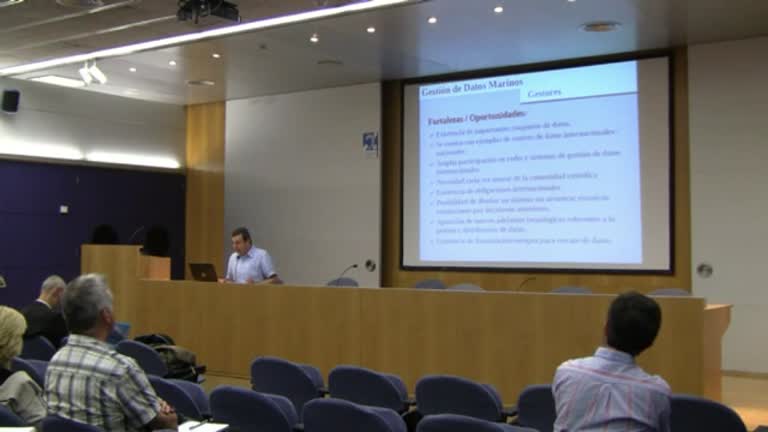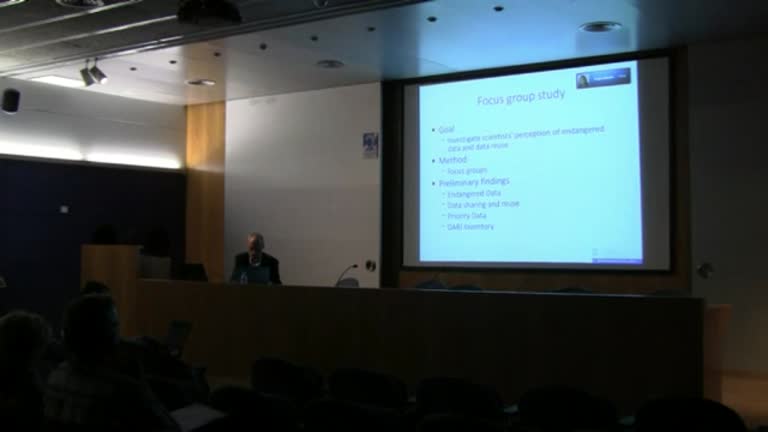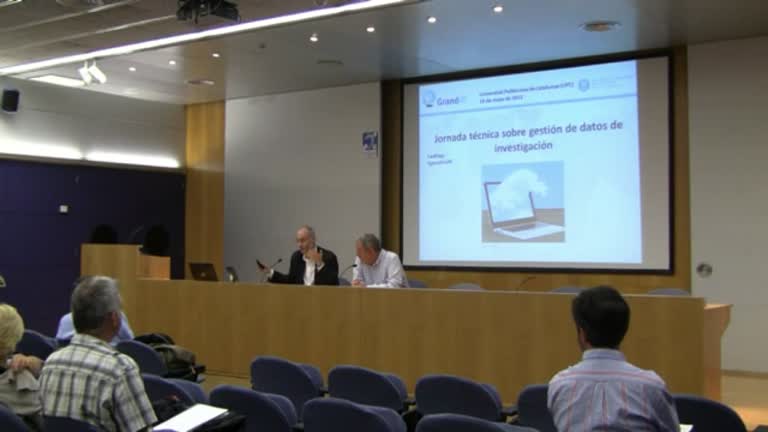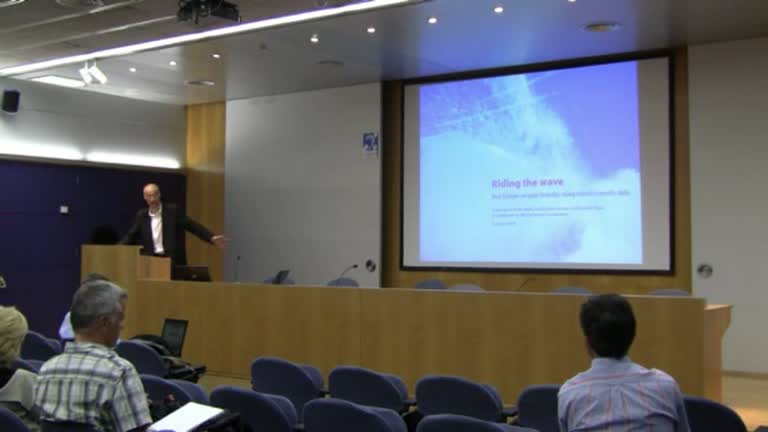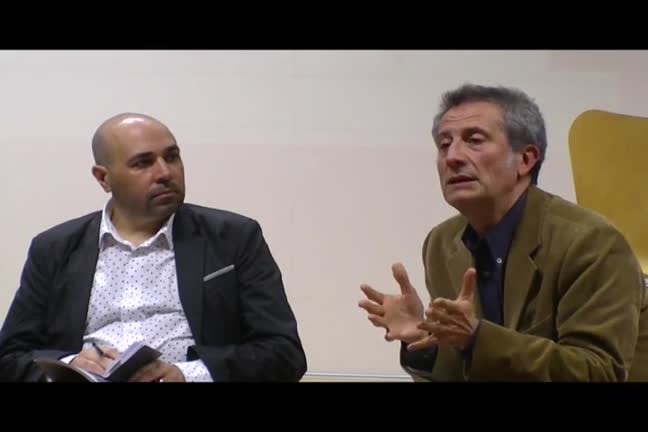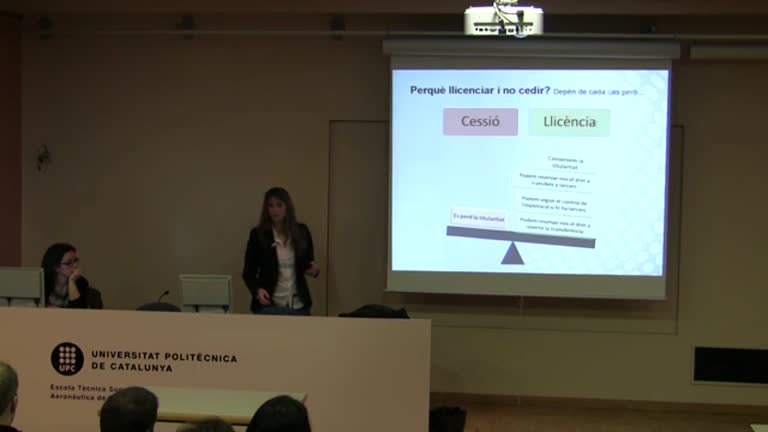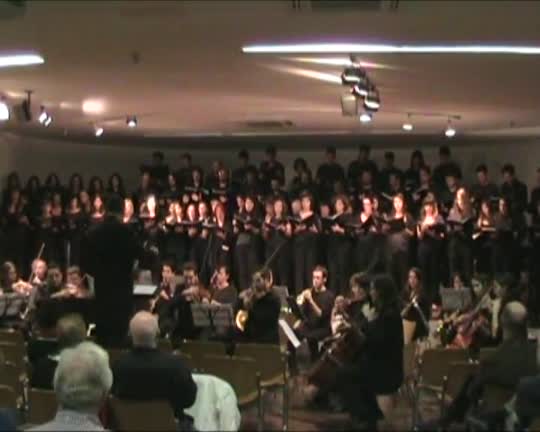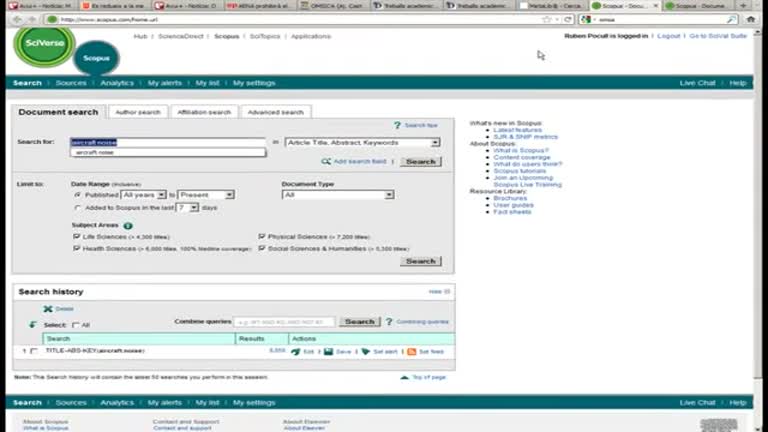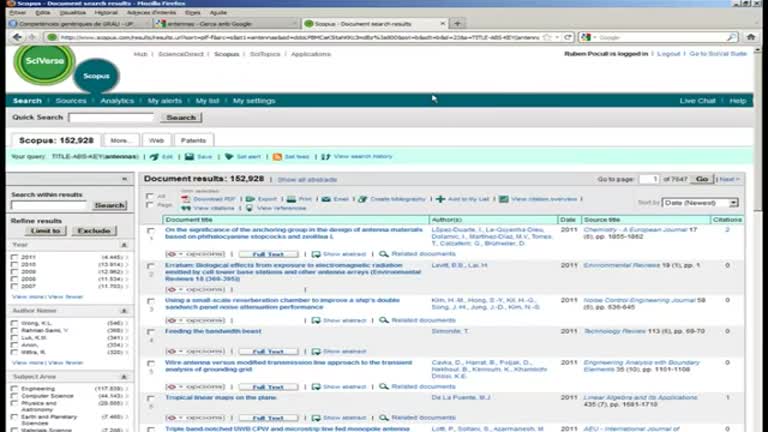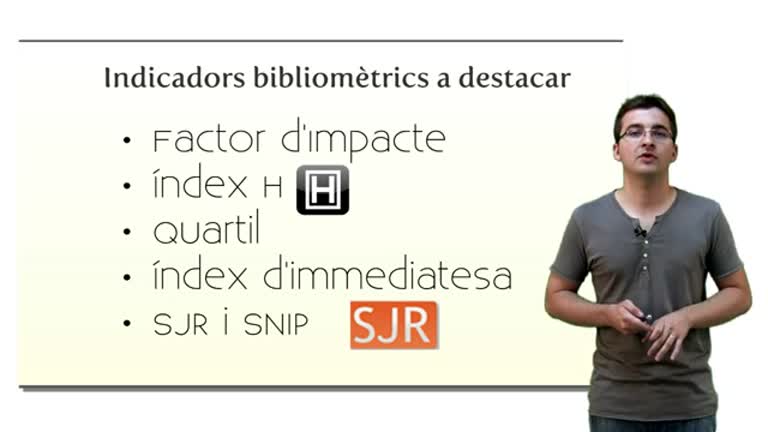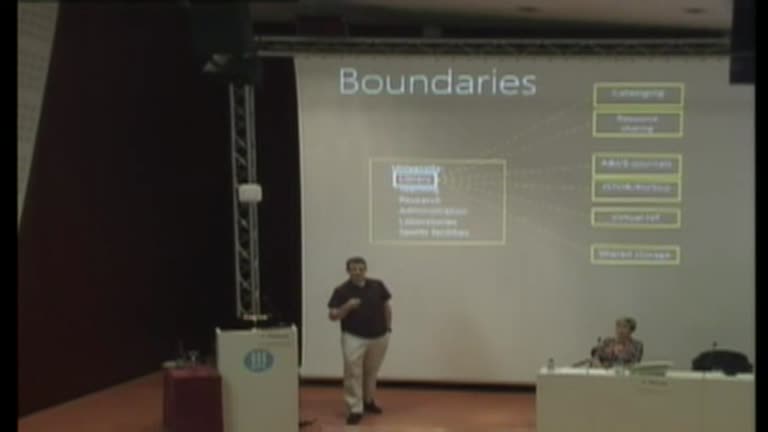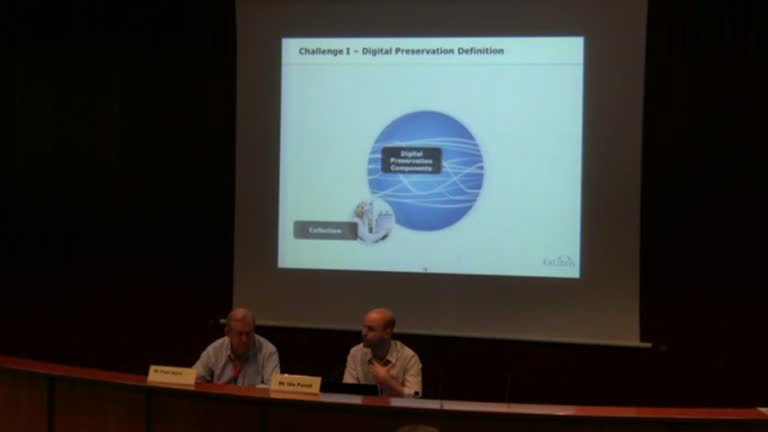Objectes multimèdia amb l’etiqueta: Recursos generals
Resultats de la cerca
La gestión de datos desde la perspectiva de un centro de datos de investigación
Accés obert
10 de maig 2012
Avances recientes a nivel internacional en la gestión de datos de investigación
Accés obert
10 de maig 2012
El cine como pretexto para la arquitectura.
Accés obert
25 d’abr. 2012
Presentació del número 21-22 de la publicació DC PAPERS (Revista de crítica i teoria de l'arquitectura), editada pel Departament de Composició Arquitectònica de la UPC, que va tenir lloc el 24 d'abril de 2012. La presentació va ser a càrrec dels professors del DCA-UPC i redactors de DC PAPERS Ricardo Devesa i Carolina B. García. Tot seguit a la projecció de la pel·lícula Playtime de Jacques Tati, va tenir lloc una taula rodona moderada per Ricardo Devesa amb els participants Manuel García Roig (arquitecte i professor del DCA-UPM), Antonio Pizza (professor del DCA-UPC) i Jaume Valor (arquitecte).
Per què cal patentar? La importància de les patents en la recerca universitària
Accés obert
27 de març 2012
Concert Coral Arquitectura de tardor 2011
Accés obert
30 de nov. 2011
La Coral Arquitectura Orquestra de la Universitat Politècnica de Catalunya dirigida per Lluís Carné Miguélez, ofereix el Concert de Tardor 2011 a la Sala d'Actes de l'ETSAB amb la programació: Gioacchino Rossini, Jacques Offenbach, Giuseppe Verdi i quinze clàssics més amb orquestració de Xandri Montasell.
Recursos i indicadors per l'avaluació de la recerca
Accés obert
25 de jul. 2011
Píndola informativa que proporciona eines per facilitar l'avaluació de la recerca acadèmica.
El vídeo inclou l'explicació sobre: eines per avaluar la recerca acadèmica, quins són els indicadors bibliomètrics més destacats, quines fonts d'informació són rellevants per aquest tema, el servei del FIBRA (Facilitador d'Indicadors Bibliomètrics i Recursos per a l'Avaluació) i quins recursos hi ha disponibles a Bibliotècnica.
El vídeo inclou l'explicació sobre: eines per avaluar la recerca acadèmica, quins són els indicadors bibliomètrics més destacats, quines fonts d'informació són rellevants per aquest tema, el servei del FIBRA (Facilitador d'Indicadors Bibliomètrics i Recursos per a l'Avaluació) i quins recursos hi ha disponibles a Bibliotècnica.
The research library, the university and the network
Accés obert
1 de jul. 2011
Libraries evolved to meet needs in a time of when information materials were distributed and consumed in physical form. Their services and their cooperative arrangements reflect this. Our discussion about digital has tended to focus on tools and collections, but what happens to the structure and organization of the library, its role within the university and the cooperative arrangements it makes, as the network reconfigures how research and learning are carried out? This presentation will present a framework for thinking about the research library as its services, expertise and boundaries change in a network environment.
The challenges of building a digital preservation system
Accés obert
1 de jul. 2011
In the last two decades, digital technology has enabled us to create, use, and be enriched by information in ways that were unthinkable a generation ago. The growth in the number of digital items in today’s library collections has led to an understanding that new actions must be taken to preserve these digital assets and make them available to future generations.
While many organizations have systems in place for storing and managing digital objects, these systems are not always designed with preservation in mind. Digital preservation is about guaranteeing the continued usability of and access to digital content tomorrow and well into the future. Although preservation focuses on risk management, we would be mistaken if we equated preservation with backup or disaster recovery.
While many organizations have systems in place for storing and managing digital objects, these systems are not always designed with preservation in mind. Digital preservation is about guaranteeing the continued usability of and access to digital content tomorrow and well into the future. Although preservation focuses on risk management, we would be mistaken if we equated preservation with backup or disaster recovery.


